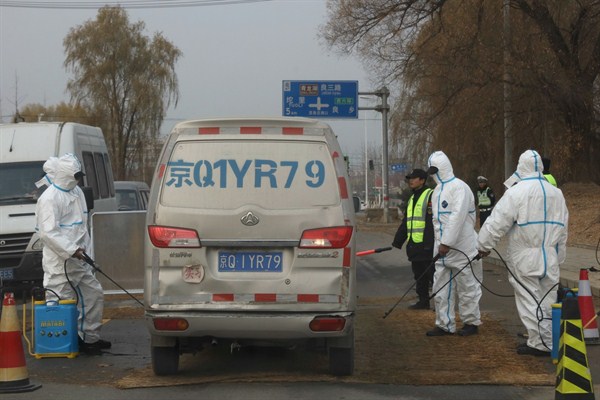Imagine this scenario: A viral disease emerges and spreads rapidly across borders. It has a nearly 100-percent fatality rate, with symptoms that include high fever, blotchy skin lesions, coughing, diarrhea, vomiting and hemorrhaging. There is no treatment or preventative vaccine for the disease, so it results in widespread loss of life and a staggering economic toll. The international system struggles to come together to stop it from spreading even further.
This might sound like any of a number of infectious diseases among humans, including SARS, Ebola and H5N1 influenza, also known as bird flu. But it actually describes African swine fever, a malady that does not infect humans but wreaks havoc on pigs. Since African swine fever first emerged in China in August 2018, the country—which produces more than half of the world’s pork—has lost more than 40 percent of its hogs due to the disease or to government culling programs. That amounts to a loss of nearly one-quarter of the world’s pigs. China’s economy as a result has incurred more than $141 billion in direct losses as of September. When including the harm to upstream and downstream industries that rely on pork, like pig feed production and catering, the damage is likely much greater.
The outbreak is not confined to China, as it has crossed into neighboring countries like Vietnam and South Korea. African swine fever has also been circulating in Central and Eastern Europe since 2014, causing more problems in the region. Bulgarian officials recently announced that they will need to cull 24,000 hogs, in addition to the nearly 250,000 that were culled this past summer in an effort to stop the disease’s spread. The Danish government has even gone so far as to build a 43-mile fence along its border with Germany to prevent wild boars from infecting its domestic pork industry. Unfortunately, boars can swim, allowing them to get around fences.

